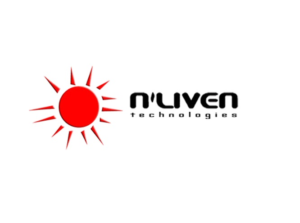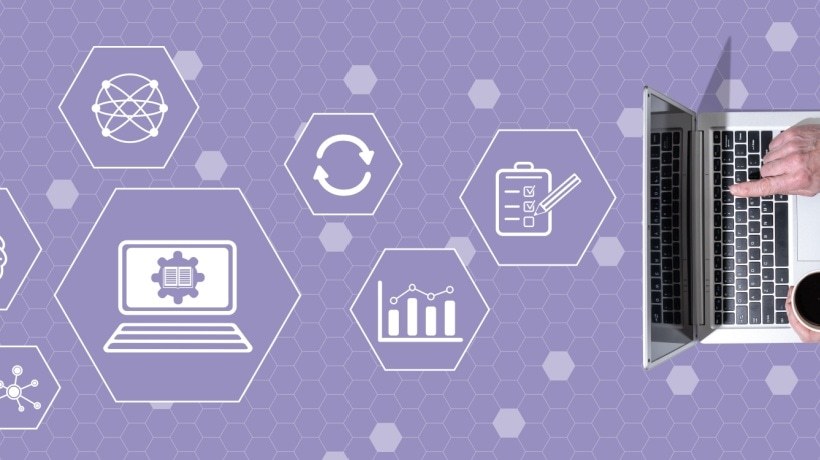A Vital Guide For University CIOs And IT Directors
In today's dynamic educational landscape, a robust Learning Management System (LMS) is more than just a platform—it's the digital backbone of your institution's academic mission. For higher education institutes, the decision to invest in a custom-built LMS is a significant one, promising tailored solutions to meet unique needs. However, this path requires careful consideration and strategic planning. This checklist outlines ten critical questions that university CIOs and IT directors must address before commissioning a custom LMS development project. By thoughtfully evaluating these areas, you can ensure that your investment aligns with your institution's goals, addresses key challenges, and ultimately enhances the learning experience for your students and faculty.
The Case For Custom LMS In Higher Education
While off-the-shelf LMS solutions offer a broad range of features, many institutions find that their specific pedagogical approaches, integration requirements, and compliance needs necessitate a more tailored approach. A custom-built LMS offers the unique advantage of being designed precisely to your institution's academic framework, administrative processes, and student requirements. This level of customization can lead to enhanced User Experience, seamless integration with existing systems, stronger data security, and long-term cost efficiency.
Navigating Key Considerations For Your Custom LMS
Before embarking on a custom LMS development project, it is essential to engage in a thorough exploration of several key areas. First and foremost, consider how the custom LMS will align with your institution's unique pedagogical needs and academic goals. It's crucial to assess whether the proposed solution can adequately support your specific teaching methodologies, such as competency-based learning or blended learning models.
The system should also be capable of accommodating specialized tools or features required by different departments or programs, for example, virtual labs or integrated proctoring software. Ultimately, the aim is to ensure the LMS will enhance the learning experience for your diverse student population and contribute to improved learning outcomes.
Scalability is another critical factor. The custom LMS must be designed to accommodate future growth in student enrollment and an expansion of course offerings. It's important to question whether the platform can handle increasing user loads and data volumes without a degradation in performance. Furthermore, the system's architecture should be flexible enough to incorporate new features and integrate emerging educational technologies, such as Artificial Intelligence (AI) or Virtual Reality/Augmented Reality (VR/AR), in the years to come.
Integration capabilities with your existing campus systems are paramount. This includes seamless data exchange with the Student Information System (SIS) for vital student records, enrollment data, and grading processes. The custom LMS should ideally also integrate with your Customer Relationship Management (CRM) system to support student recruitment and engagement initiatives. The availability of robust APIs is also a key consideration for facilitating future integrations with other essential campus technologies.
Data security, privacy, and regulatory compliance are nonnegotiable aspects. The custom LMS must be built to ensure robust protection of sensitive information and adhere to US regulations such as the Family Educational Rights and Privacy Act (FERPA) and the Americans with Disabilities Act (ADA). Specifically, the platform must follow FERPA guidelines for protecting student educational records and meet ADA requirements to ensure accessibility for all users, including those with disabilities. Inquire about the security protocols and encryption methods that will be implemented to safeguard student and institutional data.
The level of customization possible is a significant advantage of a custom LMS. Evaluate how the platform can be tailored to reflect your institution's unique identity, branding guidelines, and User Interface preferences. The User Interface should be intuitive and user-friendly for both faculty and students to encourage adoption and effective use. Additionally, the ability to tailor workflows to match your existing academic and administrative processes can lead to greater efficiency.
Understanding the total cost of ownership (TCO) is crucial for financial planning. This includes not just the initial development and implementation costs, but also ongoing maintenance, technical support, and potential future upgrades. Obtain clarity on the up-front development costs and the estimated timeline for completion. It's also important to understand the recurring costs for maintenance and support and how the long-term TCO compares to the licensing fees of off-the-shelf solutions.
A clear development timeline and a realistic assessment of required resources are essential for project success. Understand the estimated time frame for each phase of the development process: planning, design, development, testing, and deployment. Assess what internal IT expertise and resources will be necessary for the project. If you are partnering with external developers, thoroughly vet their experience in developing LMS platforms specifically for higher education institutions.
Consider who will be responsible for the ongoing maintenance, technical support, security updates, and future enhancements of the custom LMS. Determine whether your internal IT team will handle these responsibilities or if you will rely on the development partner postlaunch. Clarify what service level agreements (SLAs) will be in place for technical support and system uptime, and understand the processes for addressing bug fixes, security vulnerabilities, and implementing new features.
Intellectual property rights (IPR) are a critical legal and operational consideration. It is important to establish who will own the IPR for the custom-built LMS. Confirm whether your institution will have full ownership of the platform and its underlying code. Additionally, be aware of the licensing terms for any third-party components or integrations that may be used within the custom LMS.
Finally, thoroughly investigate a potential vendor's experience and track record. Specifically, look into their history of developing and implementing custom LMS solutions for other higher education institutions. Request references or case studies that showcase successful implementations and demonstrate measurable outcomes. The vendor must possess a deep understanding of the higher education landscape, including its unique challenges and regulatory requirements.
10 Critical Questions To Ask
Before embarking on a custom LMS development project, ensure you have thoroughly considered the following questions:
- How will the custom LMS align with our unique pedagogical needs and academic goals?
- Does the proposed solution support our specific teaching methodologies (e.g., competency-based learning, blended learning)?
- Can it accommodate specialized tools or features required by different departments or programs (e.g., virtual labs, proctoring software)?
- Will it enhance the learning experience for our diverse student population and improve learning outcomes?
- Is the custom LMS designed for scalability to accommodate future growth in student enrollment and course offerings?
- Can the platform handle increasing user loads and data volumes without performance degradation?
- Is the architecture flexible enough to incorporate new features and integrate emerging educational technologies (e.g., AI, VR/AR) in the future?
- What are the integration capabilities with our existing campus systems, including the Student Information System (SIS) and Customer Relationship Management (CRM)?
- Can the custom LMS seamlessly exchange data with our SIS for student records, enrollment, and grading?
- Will it integrate with our CRM to support student recruitment and engagement initiatives?
- Are APIs available for future integrations with other essential campus technologies?
- How will the custom LMS ensure robust data security, privacy, and compliance with US regulations such as FERPA and ADA?
- Will the platform adhere to FERPA guidelines for protecting student educational records?
- Does it meet ADA requirements for accessibility for all users, including those with disabilities?
- What security protocols and encryption methods will be implemented to safeguard sensitive student and institutional data?
- What level of customization will be possible to align with our institution's branding, User Interface preferences, and specific workflows?
- Can the platform be designed to reflect our institution's unique identity and branding guidelines?
- Will the User Interface be intuitive and user-friendly for both faculty and students?
- Can we tailor workflows to match our existing academic and administrative processes?
- What is the total cost of ownership (TCO) for the custom LMS, including development, implementation, maintenance, and potential upgrades?
- What are the up-front development costs and the estimated timeline for completion?
- What are the ongoing costs for maintenance, technical support, and software updates?
- How does the long-term cost compare to the recurring licensing fees of off-the-shelf solutions?
- What is the proposed development timeline, and what resources (both internal and external) will be required for successful implementation?
- What is the estimated time frame for each phase of the development process (planning, design, development, testing, deployment)?
- What internal IT expertise and resources will be needed for the project?
- If external developers are involved, what is their experience in developing LMS platforms for higher education?
- Who will be responsible for the ongoing maintenance, technical support, security updates, and future enhancements of the custom LMS?
- Will our internal IT team handle these responsibilities, or will we rely on the development partner?
- What service level agreements (SLAs) will be in place for technical support and system uptime?
- What processes are in place for addressing bug fixes, security vulnerabilities, and implementing new features?
- Who will own the intellectual property rights (IPR) for the custom-built LMS?
- Will our institution have full ownership of the platform and its underlying code?
- What are the licensing terms for any third-party components or integrations used in the custom LMS?
- What is the vendor's experience and track record in developing and implementing custom LMS solutions for other higher education institutions?
- Can they provide references or case studies showcasing successful implementations and measurable outcomes?
- Do they have a deep understanding of the higher education landscape and its unique challenges and regulatory requirements?
Conclusion
Commissioning a custom LMS is a strategic decision that can significantly impact your institution's educational future. By carefully considering these ten critical questions, you can navigate the complexities of custom development and ensure that your investment results in a powerful, tailored learning environment that meets the unique needs of your US-based higher education institute.
Checklist For University CIOs And IT Directors
The ten critical questions to ask before commissioning a custom LMS for higher education institutes
- How will the custom LMS align with our unique pedagogical needs and academic goals?
- Is the custom LMS designed for scalability to accommodate future growth?
- What are the integration capabilities with our existing campus systems (SIS, CRM)?
- How will the custom LMS ensure robust data security, privacy, and compliance (FERPA, ADA)?
- What level of customization will be possible for branding and workflows?
- What is the total cost of ownership (TCO) for the custom LMS?
- What is the proposed development timeline, and what resources will be required?
- Who will be responsible for ongoing maintenance, support, and updates?
- Who will own the intellectual property rights (IPR) for the custom LMS?
- What is the vendor's experience and track record in custom LMS development for higher education?
Editor's Note: check out our directory to find, choose, and compare eLearning Industry's Top LMS Software.






